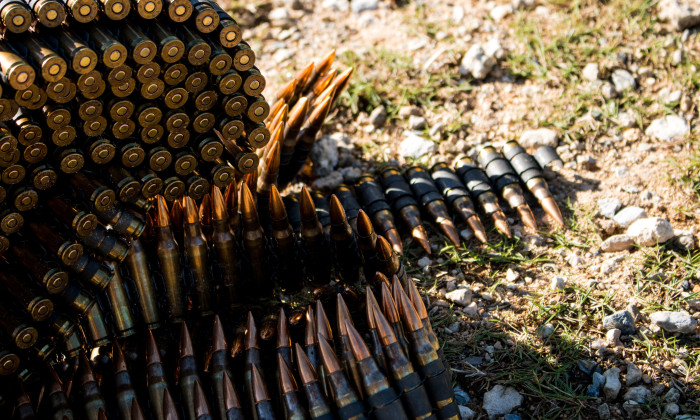Disarmament, Demobilization and Reintegration (DDR)
In 1989, the United Nations Observer Group in Central America (ONUCA) was the first UN peace operation with a mandate to undertake DDR activities. Since then, DDR programs have been a key element of peace operations.
Initially, DDR efforts contributed to a rapid improvement of the security situation in the aftermath of conflict through quick disarmament and demobilization of combatants. Typically, ex-combatants are registered at temporary camps and disarmed before being moved to other camps, where further demobilization activities would take place and the missions would inform the participants about reintegration options. These first two phases of DDR are completed within a few weeks. However, the third phase - societal reintegration of combatants - is a much longer and costlier process.
Both mandates and target groups for DDR programs were expanded in the late 1990s. Since then, sustainable economic development, reconstruction, and reconciliation of different groups in the country have been included, and local communities have increasingly been engaged in these programs (community-based DDR). In addition to UN peace operations, the UN Development Programme (UNDP), the International Organization for Migration (IOM) and the World Bank support DDR activities.
The character of DDR has changed significantly since the late 1990s. Current examples of peace operations with DDR or CVR activities::
- BINUH (Haiti)
- MINUSCA (Central African Republic)
- UNSOM (Somalia)
 © Thomas Tucker/Unsplash
© Thomas Tucker/Unsplash
In post-conflict societies, the lines between ex-combatants, gang members and criminals are often blurred. These situations require special approaches. For example, the UN Stabilization Mission in Haiti (MINUSTAH) developed a program on community violence reduction (CVR) after traditional DDR approaches had been largely unsuccessful in dealing with criminal gangs. CVR has since played an increasingly important role, including in the current UN mission in Haiti (BINUH).
The UN Verification Mission in Colombia plays a different role in the Colombian DDR process: it monitors disarmament and reintegration programs for members of FARC (Revolutionary Armed Forces of Colombia) and other militias as part of the implementation of a peace agreement between the government and the former rebel group FARC.
DDR programs have also developed linkages with counter-terrorism activities. A big challenge in this context is the societal reintegration of former combatants from violent groups such as the Lord’s Resistance Army (LRA) in Central Africa, Boko Haram in the Lake Chad Basin or Al-Shabaab in Somalia.
As of 31.07.2023